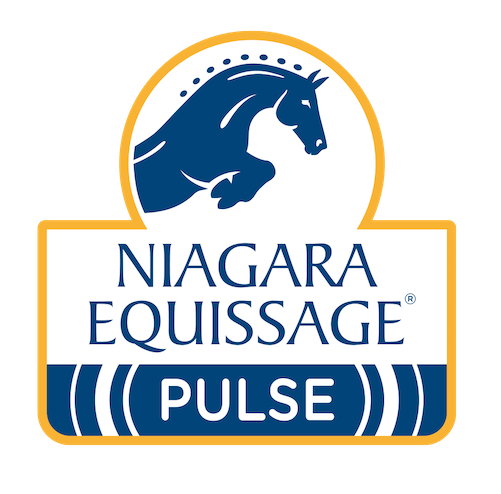Horse Cough
A cough is in involuntary reflex initiated by sensory cells located in the lining of the trachea and bronchi.
There are numerous causes of a horse cough;
- Viral infections
- The respiratory virus Equine Influenza
- Bacterial infections such as Strangles - Common allergies – Allergen particles (dust, mould spores etc) enter the lower respiratory tract and cause inflammation. Occasionally foreign objects also irritate the respiratory tract for example, a small piece of hay
- Parasites – Roundworm infections may cause coughing in foals and weanlings due to the larvae migrating through the lung tissue as part of their life cycle
- Exercise Induced Pulmonary Haemorrhage (EIPH)
- Epiglottic Entrapment
- Laryngeal Hemiplegia - Paralysis of the left vocal cord of the larynx
Such conditions are usually accompanied by abnormal breathing.
Can Niagara Equissage help to relieve a horse cough?
In certain cases it can.
The cause of the horse cough needs to be established in order to determine whether Niagara Equissage can help. For example if the cough is worm related or a foreign object is present in the respiratory tract, then Niagara Equissage can do nothing to assist. However it can help in situations where there is inflammation i.e. allergic reaction.
EIPH – Veterinary science is still trying to unravel the exact cause of this and find a reliable solution. However, given the properties that Niagara Equissage has in helping to tone and strengthen muscles and tendons, there is every reason for believing that its use can also assist the mechanism of the lungs. Using Niagara Equissage to help manage this condition certainly cannot do any harm as it will help in opening up the airways and promote good lung hygiene.
Laryngeal Hemiplegia – A Hobday or Tie-Back Operation is required depending of the severity of the individual case. Massage is proven to help in reducing scar tissue as it stimulates sensation. As a general rule, the earlier and more consistently scar tissue is exercised, massaged and warmed, the less possibility of developing any long-term concerns.
Epiglottic Entrapment – This also involves a surgical procedure to remove the excess tissue which “traps” the epiglottis so that is cannot function properly.
Application
In the case of Laryngeal Hemiplegia, following the operation, use Niagara Equissage as part of the horse’s daily physiotherapy and also to help keep scar-tissue to a minimum. On a daily basis, in conjunction with the Back Pad (medium setting), use the Hand Unit (on a low setting) to gently massage the neck to encourage healing and prevent tightening of the neck muscles which is a natural consequence of the operation.

Testimonials
See All- Kentucky Derby Winning Trainer & Olympic Show Jumping Silver Medalist
"The Niagara Equissage is great for warming up and relaxing horses before daily training. We use it for pre-race warm up and for post-race stiffness. We also find that it works great on fillies that tie up."
- Racehorse Trainer in Ireland
My entire yard has been on Brandes Formula for the past year. It is an excellent equine supplement that has helped to keep my horses healthy throughout the season. I would highly recommend Brandes Formula!
- “Niagara Equissage is an important part of our training program. We use it everyday, especially before working both young and old horses. It helps them loosen up and be comfortable and ready to work. It helps our show horses go better, and improves the demeanor of our school horses. The results we get from the Niagara Equissage on our 23 year old horse are fabulous.”

